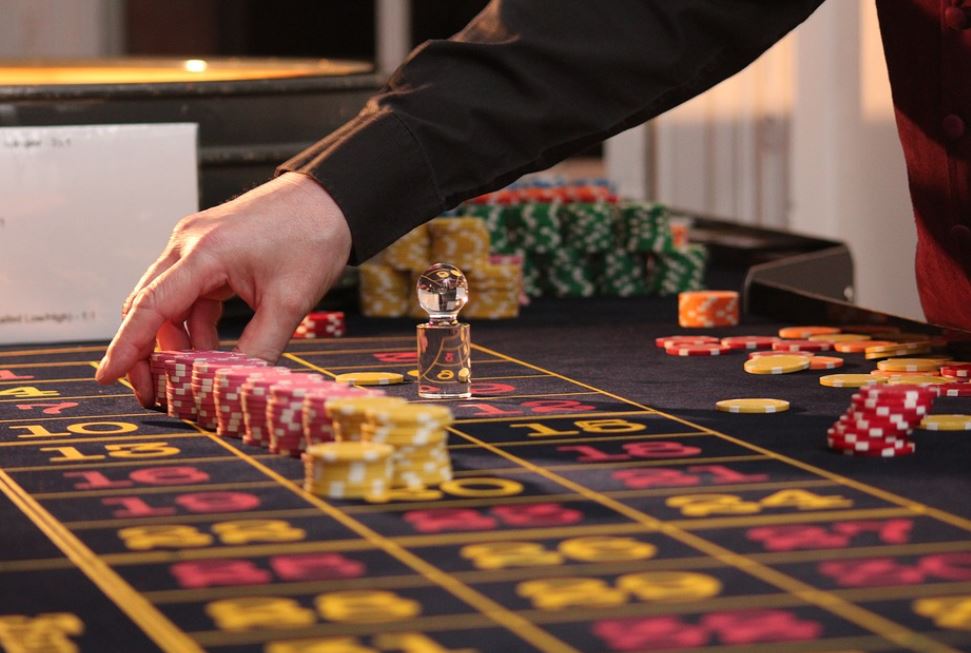
Casino games have captivated gamblers for ages, drawing them into a realm of adventure, fortune, and prosperity. From the blinking lights of video slots to the tactical intensity of card tables, these games offer a special mixture of amusement and risk. However, beneath the surface of this glitz and style lies a intricate connection of math that determines every conclusion and choice made within the gambling establishment.
Grasping this link between gaming activities and numerical principles not just improves the playing experience but may also help participants make knowledgeable selections. Whether you are a occasional gambler or a passionate enthusiast, recognizing the math concepts at play can offer important understandings into probability, odds, and tactics, ultimately shaping how one tackles these chance games.
Statistical Likelihood in Gambling
In the world of casino activities, statistical probability plays a vital role in determining results and guiding gambler decisions. Every game has a distinct set of regulations and a specific probability framework that shapes its mechanics. For example, in activities like roulette, players must comprehend the chances of landing a specific number or color. The probability of certain occurrences occurring can be computed, and this understanding can substantially influence wagering tactics.
Players also need to be informed of the casino edge, which is the statistical advantage that gambling establishments hold over players in the long run. This edge varies across different activities. In 21, expert players can use strategies to reduce the house advantage to as little as 1 %, while in games like slot machines, the casino edge can be much higher. Understanding the casino edge allows gamblers to make informed choices about which activities to play and how much to bet.
Additionally, probability is fundamental in the concept of risk versus reward in betting. Each wager carries a specific risk factor, and players must assess the potential return against that danger. Games like poker require gamblers to not only assess the odds of their personal showing winning but also to assess the probabilities of their rivals’ hands. By utilizing mathematical concepts to their strategy, players can enhance their chances of success and engage more effectively in the thrilling realm of casino games.
Anticipated Value in Gambling Games
When talking about gambling activities, one of the basic concepts rooted in mathematics is the anticipated value. This numerical measure assists players understand the potential outcomes of their bets over a period. In simple terms, anticipated worth (EV) calculates the average amount a player can expect to gain or lose per bet if they were to play the game many times. Each game has its unique EV, influenced by the probabilities and the house edge, which signifies the advantage that the gambling establishment holds.
For instance, consider a activity like roulette. The anticipated worth can be calculated based on the particular wager placed. If a gambler bets on a single number, the return is 35 to 1, but the true odds of winning that wager are 1 in 37 (in Euro roulette). This results in a detrimental expected value, indicating that, on the whole, players will incur a loss money over time when playing this kind of bet. Grasping this concept allows gamblers to make better educated choices about which games and wagers may be more favorable.
Moreover, the exploration of anticipated value can lead to better bankroll management. Gamblers who comprehend the math behind their games are often able to set realistic expectations. By acknowledging their potential losses and profits, they can adjust their gambling strategies appropriately, which may improve their overall gaming experience. As a consequence, expected worth serves as a crucial tool for both novice and seasoned gamblers to navigate the often unpredictable nature of casino activities.
Tactics and Probabilities: The Mathematics Behind Success
In casino games, comprehending the odds is vital for gamblers attempting to boost their likelihood of winning. GA179 Each game has its own specific set of chances that establish winning results, and these statistics are often found in the game’s guidelines or payout schedules. For instance, in activities like 21, players can boost their probabilities through tactics such as card counting, which is based on math principles to gain an upper hand over the casino. By educating themselves with the odds, gamblers can make more informed determinations on when to place bets and when to give up.
Additionally, the idea of expected outcome has a significant function in gambling strategies. Expected value assesses the typical outcome of a bet over a period, allowing participants to assess whether a certain stake is justifiable taking. For instance, video slots have a fixed payback percentage, which can show the average return a gambler can expect on their stakes. By selecting activities with greater expected values, gamblers can reduce the house advantage, enhancing their potential returns in the over time.
In conclusion, successful players often adopt a blend of luck and calculative tactics to boost their gaming experience. While luck is unpredictable, managing a staking plan based on math insights can lead to more favorable outcomes. By employing techniques such as bankroll management and game selection, players can utilize math to maneuver through the volatile nature of gambling activities, making the most of their investments and resources at the casino.
